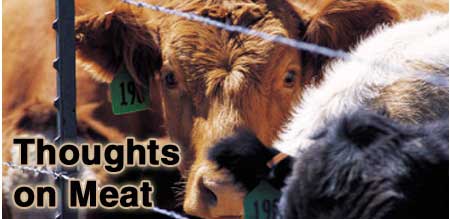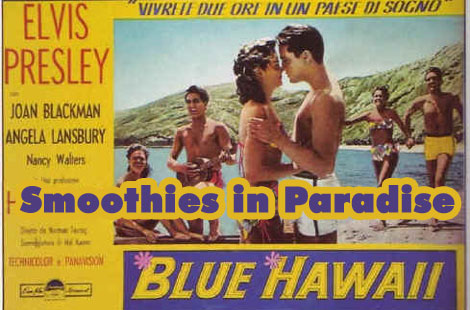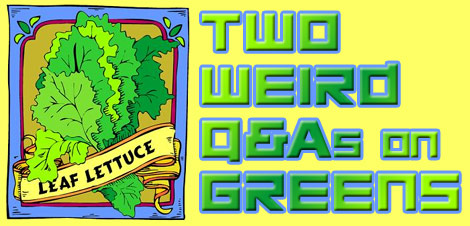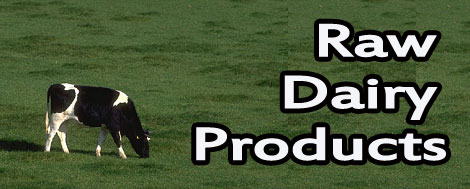Welcome to Episode FIVE! Today we're focusing on our old friend the WALNUT. Since it's officially fall, walnuts are in season right now. What better time to enjoy one of nature's tasty, heart-healthy treats?
Some health/nutrition summary info: Walnuts provide a great source of protein, fiber, B vitamins, Vitamin E, anti-oxidants to help prevent cancer, and Omega 3s to help your heart and vascular system. They also help lowering your cholesterol and blood pressure, and contain numerous beneficial amino acids and polyphenols (compounds linked with reduced risk of heart disease and cancer).

Jim here... Wow, how awesome is it that today's Makin' It Monday falls just one day after Mother's Day -- and that we had ?a very special guest edition ready to post featuring ... ?my awesome mom! ??!!! ?I love my mom so much ... she's the best mom ever! And you'll love watching her demonstrate how to make 100% raw hummus. Mom might be 100% Italian, but she makes a pretty mean 100% Lebanese raw hummus, which is a pretty popular dish in my family. Here's the vid!
Read more: Makin' It Monday Guest Raw Chef Edition: Jim's Mom Makes Raw Hummus!

Jim here... Recently, a commenter on this blog, Lannette, mentioned being a cardiac rehab nurse. For some reason, reading this set my wheels spinning in various directions, among them onto the topic of meat consumption in the world. To begin, I'd like to recap something I'd said in response to her:
... it *astounds* me how people joke about heart health where I work. People around here routinely return from medical exams and actually adopt rather mischievous grins when they reveal how high their bad cholesterol levels are. It's like they're saying, "I know meat and dairy are bad for me, but I'm going to keep on eating it anyway. Isn't that funny ??!!!" Ummm, no. It's sad. They laugh it off as though there could be no possible future reckoning for them. It's reminiscent, IMHO, of Dr. Viktor Frankl's book "Man's Search for Meaning," in which he describes a psychological phenomenon he termed the "delusion of reprieve." For anyone unfamiliar w/ that, the term describes the phenomenon via which those faced with certain death (or near certain death) mentally construct some way out of it. They are deluded into believing that they'll have a reprieve from the inevitable. So, it's exactly the same to me -- these people see the heart attacks coming. They simply refuse to do anything about it, refuse to change their habits, deny what their blood work says to them. Why? Because they think "I'll be okay. Sure, this leads to heart disease in most people, but not in *me* because I'm a strong guy, I'm macho, I'm not as fat as some other person here, etc." Mostly, it's the meat, I think. It's got a powerful hold on our society...
So, today I wanted to write a little bit on the topic of meat consumption. This is an enormous issue, in my opinion. If you're reading this, it likely means you're already at least a vegetarian, so I do not need to quote you any saddening statistics on the horrors of the meat industry. In fact, before writing this, I decided to visit the PETA web site quickly in order to glean a few slaughterhouse facts. But, in no time, I became markedly depressed, so I'll largely avoid focusing on specific negative imagery here.

Is low fat more expensive? When I was eating a lot of nuts and seeds, in the back of my mind I kept saying, "Someday you'll eat less of these nuts and seeds, and you'll save a lot of money." I really believed that to be true because organic, raw nuts and seeds are outrageously expensive.
For one hundred days, I'm transitioning to a lower fat raw diet. I'm down to fats only in the evening, and for the next ten days those fats will only come from avocados, young coconuts, and possibly some hemp seeds. If I'm not hungry for the fat, however, I'll go without it. That hasn't been the case yet, though. By dinner time I'm ravenous and wanting to eat heavy, dense foods to calm the hungry beast in my belly. Even though I've been including some fats in the evening, I'm eating significantly less than I normally would if not doing this challenge. So, I've been eating more fruits and vegetables to get the calories I normally received from nuts and seeds.

Those consuming a raw food diet sometimes use a dehydrator to prepare raw food dishes. They do this at low temperatures, below the point of actually cooking the foods, to intensify flavors, reduce the amount of moisture in the dish, and sometimes to take the chill off something they'd rather serve a bit warmer than straight out of the refrigerator. There is a practice that we've seen, however, that is actually cooking the very foods were taking such great measures to consume raw! Let me share an experience I had when I first started eating raw foods, that will help explain how some of us may be cooking our foods by mistake.
In the beginning of eating raw foods, my entire family loved the Vegetable Stir-Dont-Fry I used to make (you can find that recipe in the free eBook you downloaded when you first visited our site). One day I created a double recipe so we could eat more the next day, without going through the process of preparing it again fresh. The following day I took the bowl of Stir-Dont-Fry out of the refrigerator and put it into the dehydrator to take the chill off. It wasn't warming up fast enough on such a low temperature, so I thought I'd just cover the dish a little bit to trap in some of the heat that seemed to leave each time I checked the dish and stirred it around. So, I took a plate and placed it on top of the bowl with about an inch, or two, opening.

In this video, Wendi talks with Leela Mata, spiritual leader of the Peaceful Valley Ashram, about her experiences with the raw food diet and a bit about a cob oven structure that was built on the ashram property. This is part 2 of a 5-part series featuring Peaceful Valley Ashram.
Read more: Leela Mata Discusses Her Experiences with Raw Foods

Yesterday we began a discussion of adding protein powders into your diet (for those who feel that they want or need to do this). One of the easiest ways to get this powder into your body is to add it to your morning smoothie. ?Now, if you're not into the habit of having a morning smoothie, step #1 is to get into that habit. ?(Actually, I don't just "have" morning smoothies; I thoroughly enjoy them!)
Now, you'll notice that smoothies made with protein powder taste quite a bit richer than what you might be used to. So, I want to start with a smoothie that I found to be somewhat light tasting. In fact, I'd even call it "The King" of smoothies. ?:-)
Read more: Protein Powder Smoothies Part 2 of 3: The Blue Hawaii Smoothie
Yesterday we talked about stress eating and I suggested coming up with a plan for ways you can deal with stressful situations in the future, before mindlessly turning to food for stress relief. I even said maybe it was okay to eat a gallon of ice cream if that's what makes you feel better. A healthy lifestyle isn't only about the foods we put into our mouths; it's about overall health (body, mind, spirit, emotions) and the decisions we make regarding our overall health on a daily basis.
Many times, individuals who struggle the most when trying to eat a healthy diet are the ones who have other aspects of their lives keeping them from attaining the healthy lifestyle they're desiring so much. For them, working on their diet may not be the best approach to overall health. If eating something we know is healthy for our bodies, something we know looks and tastes great, is difficult to do then there's something bigger going on in our lives than just food. If that's the case, it's important to figure out what's going on.

Here's a fun story, with a fun, inspirational, and at least partially dietary conclusion. As I mentioned yesterday, Wendi is in Portland this week. Can you guess what she's doing there? ... She's attending a very important event -- something that merited getting on an airplane with almost no notice (and, wow, are those last-minute airfares pricey!). Still not sure? That's okay; I'll let the cat out of the bag: We found a new home!!
We've been talking about moving to the west coast for literally years now, so it's about time, right? ?In recent times, we've really begun taking action on things in a much more profound and immediate way than ever, and it's been working out amazingly well. This home purchase was just the latest instance of it. We basically saw an opportunity and immediately went for it, without hesitation, and before we knew it we were sending paperwork back and forth across the internet to our realtor.

We all know what "greens" are in general. For example, no one questions whether lettuce, kale, spinach, or chard are greens. But on the other hand, all of those items *are* also clearly green in color. With that in mind, what would you make of the following two questions I (Jim) recently pondered -- tagged as "reader questions" so they're easily found in the future by other equally inquisitive people ;-) -- that seem bizarre, but are really quite interesting?
1. Are non-green greens (e.g., purple kale) still considered greens2. Are vegetables with green skins (e.g., cukes, zucchini) considered greens? (After all, they're green!)
***** DISCLAIMER: As with all of our posts here at Pure Jeevan, and particularly those tagged with a new term, "Nadi Balance," please refer to the disclaimer that runs at the bottom of all Pure Jeevan pages. Wendi and Jim are health researchers, educators, and extreme self-experimenters; not doctors. ******

If you've been following this Nadi Balance series, you're probably as fascinated as we are with the body and the myriad ways in which we can peer into our physical health through observation and experimentation. Yesterday, we learned about a blanace being necessary in the human body between fatty acids and sterol fats. (This is but one of the many balances we'll eventually talk about under the larger umbrella of Nadi Balance.) We shared how Wendi's body was in an an extremely unbalanced state, with her fatty acids far outweighing the amount of sterol fats.

